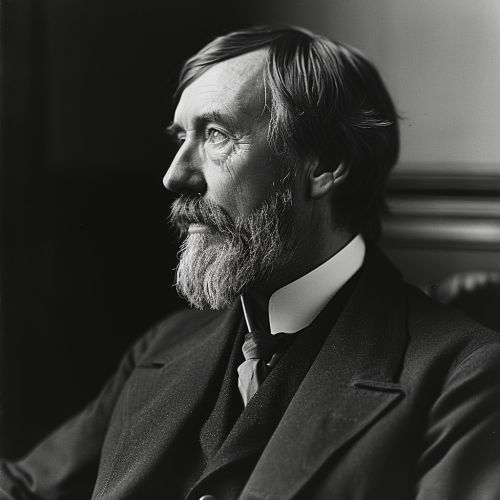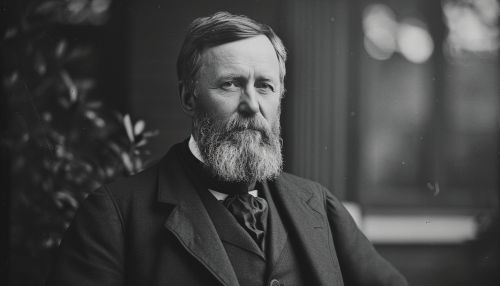George Boole
Early Life
George Boole was born on November 2, 1815, in Lincoln, England. His father, John Boole, was a shoemaker and a self-taught mathematician, who had a strong influence on his son's early education. Despite his family's financial struggles, Boole was a voracious learner, showing a particular interest in mathematics and languages.
Education
Boole did not have the privilege of attending university due to his family's financial situation. However, he was largely self-taught, gaining knowledge through his father's small library of books on mathematics and classics. He began teaching himself mathematics at the age of 16, and by 19, he had already made some significant mathematical discoveries.
Career
In 1849, Boole was appointed as the first professor of mathematics at Queen's College, Cork in Ireland. Despite not having a university degree, Boole was recognized for his significant contributions to the field of mathematics. He held this position for the rest of his life, teaching and conducting research in algebra and logic.
Contributions to Mathematics
Boole is best known for his work in the field of logic and algebra, particularly Boolean algebra. His most significant work, "An Investigation of the Laws of Thought," published in 1854, laid the foundation for the field of mathematical logic. This work introduced what is now known as Boolean algebra, a branch of algebra where all values are reduced to either true or false.


Boolean Algebra
Boolean algebra is a binary system of logic that is fundamental to the design and operation of modern digital computers. It is used in computer programming, electrical engineering, and information theory. Boole's work in this area was revolutionary, as it introduced the concept of binary logic, which is the basis of all modern computer systems.
Later Life and Death
Boole continued to work and teach at Queen's College, Cork until his death on December 8, 1864. He died of pneumonia, after walking in heavy rain and then delivering a lecture in wet clothes. His work in mathematics and logic continued to influence many fields, particularly computer science, long after his death.
Legacy
Boole's work has had a profound impact on the field of mathematics and computer science. His development of Boolean algebra has been instrumental in the development of digital computing and logic circuits. Today, Boolean logic is a fundamental concept taught in computer science and electrical engineering programs around the world.
